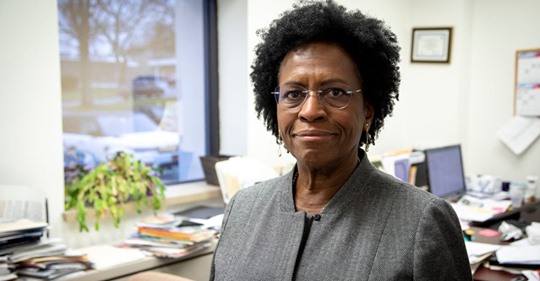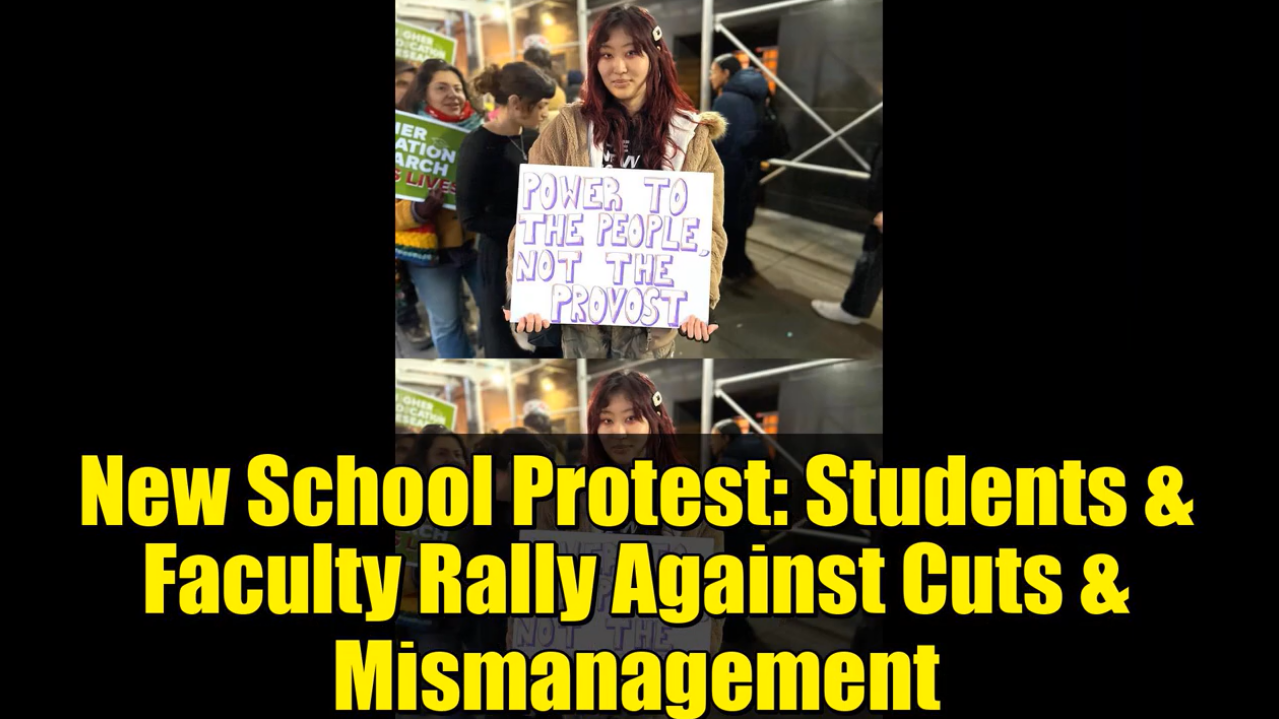[New York News\Housing Discrimination]
ERASE Racism’s fair housing investigation led to successful litigation resulting in settlements with real estate companies in both Nassau and Suffolk counties. Those property owners and management companies had been showing rental apartments to white applicants and treating Black applicants differently, denying them access to the apartments. When Black individuals and couples inquired about apartments, they were told, among other things, that nothing was available, that there was a long waiting list, that the rent was higher, and that they should check back in the future. When whites inquired, they were shown available apartments and encouraged to apply.
Photo: Facebook
Elaine Gross, President of ERASE Racism, above, called yesterday on municipal, county, state, and federal governments as well as the real estate industry to address widespread housing discrimination on Long Island.
New evidence of that discrimination is documented on a massive scale in a three-year investigation by Newsday published on November 17 in a 36-page report: “Long Island Divided.”
The investigation conducted a region-wide paired-testing initiative, in consultation with the Fair Housing Justice Center, to measure how real estate agents treated minority clients compared to white ones. The report found “evidence of widespread separate and unequal treatment of minority potential homebuyers and minority communities on Long Island.” Black testers experienced disparate treatment 49 percent of the time, compared with 39 percent for Hispanics and 19 percent for Asian testers.
The investigation reinforced ERASE Racism’s own experience with earlier paired testing; for that testing, we also benefited from the expertise of the Fair Housing Justice Center. ERASE Racism’s fair housing investigation led to successful litigation resulting in settlements with real estate companies in both Nassau and Suffolk counties. Those property owners and management companies had been showing rental apartments to white applicants and treating Black applicants differently, denying them access to the apartments.
When Black individuals and couples inquired about apartments, they were told, among other things, that nothing was available, that there was a long waiting list, that the rent was higher, and that they should check back in the future. When whites inquired, they were shown available apartments and encouraged to apply. One case in Mineola – ERASE Racism, et al. v. LLR Realty LLC , et al. – was settled in 2014. The other in Commack – ERASE Racism, Inc., et al. v. Empire Management America, Corp., et al. – was settled in 2016.
“ERASE Racism applauds Newsday for conducting this landmark investigation on such a massive scale,” said Elaine Gross, President of ERASE Racism. “Newsday has documented throughout the region a pattern of housing discrimination that can no longer be ignored. Its existence is proven. The question now is: What will government, real estate, and civic leaders do about it?”
While Newsday’s report focuses on practices of the real estate industry, those practices are intertwined with myriad policies and practices that produce and maintain residential segregation, long-established and perpetuated on Long Island. The obligation to ensure fair housing exists at all levels of government and throughout the industry. The failure to do so exists in all those areas as well.
Long Island’s two counties include 13 towns and 97 incorporated villages, creating a municipal fragmentation that divides rather than unites. New York State has adopted “home rule,” delegating specific powers to local municipalities, including control of land use, which enables exclusionary zoning. In addition, the real estate industry is politically powerful and works to maintain the status quo. A recent paper that Elaine Gross wrote for the NYU Furman Center on “Housing Discrimination and Local Control “ explores the impact of local control in this respect.
At the same time, the federal government is rolling back its commitment to fair housing. ERASE Racism published in October a report titled “Civil Rights Rollback: U.S. Government Actions to Reduce Civil Rights in Housing and Public Education.” One of those areas of housing is a new rule [Docket No. FR-6111-P-02 ] proposed in August by the U.S. Department of Housing and Urban Development (HUD) that would make enforcing the Fair Housing Act much more difficult when based on the discriminatory impact of policies or actions. The proposed rule, which ERASE Racism and other civil rights advocates oppose, has since undergone a 60-day comment period during which more than 45,750 comments were received nationwide.
In late 2018, ERASE Racism launched an ongoing region-wide initiative called “How Do We Build a Just Long Island?” That question is more vital than ever, as Long Islanders now grapple with the definitive findings of this landmark Newsday report.
Today, the Office of the New York Attorney General issued a statement saying that an investigation is being launched “into allegations of discriminatory practices by Long Island real estate agents as first reported by Newsday.”
Attorney General Letitia James issued a statement saying, “Fair access to housing is a basic civil right that all New Yorkers, including Long Island residents, are entitled to.The pattern of discrimination uncovered by Newsday’s intrepid reporting raises significant concerns and calls for action. I have directed the Civil Rights Bureau in my office to investigate these serious allegations and we encourage Long Island residents to report any instances of housing discrimination. We will do everything in our power under the law to protect the civil rights of New Yorkers and ensure that no one is denied housing based on their personal background.” ”
Additional information on ERASE Racism is available at www.eraseracismny.org. To speak with Elaine Gross, contact Henry Miller at 917-921-8034 or [email protected].
ERASE Racism is a regional civil rights organization based on Long Island that exposes and addresses the devastating impact of historical and ongoing structural racism, particularly in public school education and housing. It does so through research, policy advocacy, legal action, and educating and mobilizing the public – driving policy change at local, regional and statewide levels and through national coalitions. It has been recognized locally and nationally for its cutting-edge work.







